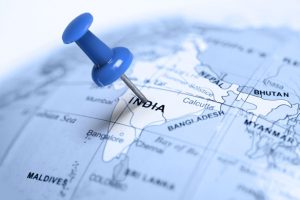India, U.S. absent from massive RCEP trade pact
It took about eight years to negotiate the details, but eventually 15 nations from the Asia Pacific belt signed on the dotted line on the Regional Comprehensive Economic Partnership (RCEP) earlier this week.
Missing from the deal, however, were the United States and India from the agreement. The pact seeks to lower tariffs and open up services trade within the bloc.
The MetalMiner 2021 Annual Outlook consolidates our 12-month view and provides buying organizations with a complete understanding of the fundamental factors driving prices and a detailed forecast that can be used when sourcing metals for 2021 — including expected average prices, support and resistance levels.
RCEP includes 15 countries, including China
The 15 countries to sign off on the RCEP include China, Japan, South Korea, New Zealand and Australia. Together, they account for a GDP of $26.2 trillion, or 30% of global GDP. The agreement covers a market of 2.2 billion people.
The RCEP is looked upon as a cooperative union where countries are committed to protect member nations from imports of other non-members.
The aim is to give preferential treatment for trade between the member countries. That treatment comes in the form of lower tariffs, preferential market access, customs union or free trade in specific sectors.
India remains out on RCEP
After initial interest, India remains unconvinced by the RCEP.
However, experts in the country have varying opinions as to whether India made the right move.
Pro-RCEP experts said there are advantages of regional trade pacts. These types of pacts often lead to higher foreign direct investments for participating countries as supply chains reorient across the member nations.
Furthermore, signatory nations got access to otherwise closed foreign markets, leading to a higher volume of trade between countries.
India reiterated its arguments against joining this new partnership. External Affairs Minister S. Jaishankar said the effect of past trade agreements had been to deindustrialize some sectors. India had allowed other countries “unfair” trade and manufacturing advantages “in the name of openness.”
According to the Minister, this worked against India in the long run.
Countries hope for RCEP boost amid pandemic
Many of the participating countries are looking at the RCEP to get their pandemic-hit economies back on track.
After the virtual signing, Chinese Premier Li Keqiang said the new pact showed multilateralism is the right way ahead, NDTV reported. Li added it represented the right direction of the global economy and humanity’s progress.
LiveMint reported said India had refused to sign the RCEP deal because the pact did not address its concerns. India has been raising the issue of market access along with a protected list of goods and services to shield the domestic economy.
It is no secret that cheap imports from China, including steel, continue to flood the Indian market. India feared the removal of duties on such goods after joining the RCEP would lead to even more imports. In turn, those rising import would harm Indian producers.
Some Chinese trade experts told Chinese media India had committed a “strategic blunder” and “missed the bus” to long-term growth by not joining the RCEP, the Hindustan Times reported.
Per the report, Liu Zongyi of the Centre for China-South Asia Cooperation at Shanghai Institutes for International Studies said the Indian government argues China has an advantageous position in the deal.
Furthermore, it argues India’s ballooning trade deficit with China would leave it in an unfair position were it to join.
ASEAN hails ‘historic milestone’
In addition, the Association of Southeast Asian Nations (ASEAN) hailed the Nov. 15 signing of the pact as a “historic milestone.”
“The signing of the RCEP Agreement is a historic event as it underpins ASEAN’s role in leading a multilateral trade agreement of this magnitude, despite global and regional challenges and eight years of negotiations,” ASEAN Secretary-General Dato Lim Jock Hoi said.
“RCEP will give a much-needed boost for a swift and robust recovery for businesses and peoples in our region particularly during the current COVID-19 pandemic crisis.”
In a joint statement, the heads of state of ASEAN nations also praised the deal. The leaders referred to RCEP as an “unprecedented mega regional trading arrangement.”
Furthermore, the leaders left the door open for India to join.
“Further, we would highly value India’s role in RCEP and reiterate that the RCEP remains open to India,” the joint statement reads. “As one of the 16 original participating countries, India’s accession to the RCEP Agreement would be welcome in view of its participation in RCEP negotiations since 2012 and its strategic importance as a regional partner in creating deeper and expanded regional value chains.”
Want an occasional email from MetalMiner that highlights new content with NO sales ploys? Join that list here.



Leave a Reply